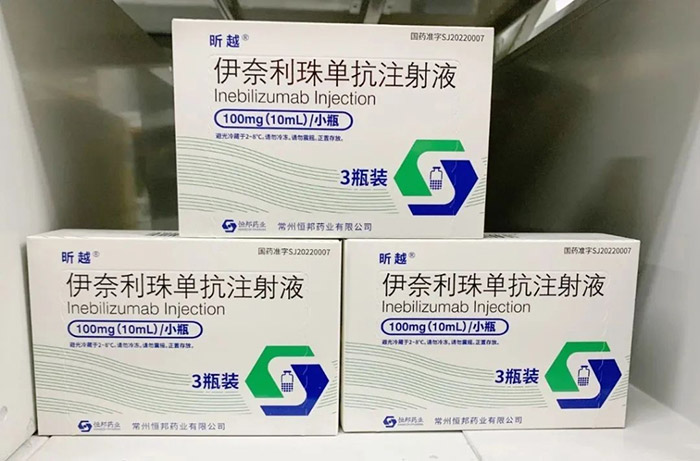
According to the requirements of the National Healthcare Security Administration for the supply guarantee of negotiated drugs, Xinyue has been included in the "dual-channel management" scope in a number of provinces and regions across China, including Shanghai, Jiangsu, Zhejiang, Sichuan and Hunan, and will further be included in other provinces and regions. After its inclusion in the "dual-channel management" scope, Xinyue can be purchased as a reimbursable drug at designated pharmacies, which is expected to break the dilemma of "difficult and expensive diagnosis and treatment" facing NMOSD patients in China and help more patients to reduce recurrence and disability and return to normal life as soon as possible.

According to Professor Hao Junwei, "The incidence of NMOSD is about 5-10 per 100,000. China has a large number of NMOSD patients. After Xinyue enters the National Reimbursement Drug List, its reimbursable rate can reach up to 80% in the future according to relevant local policies, which will fully improve the accessibility, affordability and standardization of clinical treatment for NMOSD patients in China."

Xinyue is a Class A recommended drug in China's Guidelines for the Diagnosis and Treatment of Neuromyelitis Optica Spectrum Disorders. According to evidence-based proof, Xinyue reduces the risk of recurrence by 77% through 28-week monotherapy, with the mean recurrence rate being 1% in year 4 of long course use; and it reduces the risk of worsening disability by 63%, is safe and reliable, and provides overall patient benefit. From the approval for marketing to the rapid launch as a reimbursable drug, every step of Xinyue for the benefit of Chinese patients fully demonstrates "China's speed" to address the urgent clinical needs of rare disease patients and to accelerate the accessibility and affordability of breakthrough innovative drugs worldwide.
Looking ahead, Hansoh Pharma will further deepen its innovation-driven strategy, leverage the global innovation ecosystem, explore and develop more innovative and good drugs to meet urgent clinical needs, and make unremitting efforts to improve human health and quality of life.
Neuromyelitis optica spectrum disorders (NMOSD) is a rare neurological autoimmune disease with predominant involvement of the optic nerve and spinal cord, occurring mostly in young adults and common in women. China has the largest base of NMOSD patients, and clinical evidence shows that NMOSD is characterized by high recurrence and disability, imposing a heavy burden on patients, their families and society.
Xinyue (Inebilizumab Injections) has been granted orphan drug status by the U.S. Food and Drug Administration (FDA) and the European Medicines Agency (EMA), and has been granted breakthrough therapy designation (BTD) by the FDA. Inebilizumab Injections were approved for marketing by the FDA in June 2020, by the Japanese Ministry of Health, Labour and Welfare (MHLW) in March 2021, and by the EMA in May 2022. Inebilizumab Injections were introduced into China by Hansoh Pharma in 2019, listed as a Class A recommended drug in China's Guidelines for the Diagnosis and Treatment of Neuromyelitis Optica Spectrum Disorders (2021) in December 2021, approved for marketing by the National Medical Products Administration in March 2022, and included in the National Reimbursement Drug List for Basic Medical Insurance, Work-Related Injury Insurance and Maternity Insurance (2022) in January 2023.
